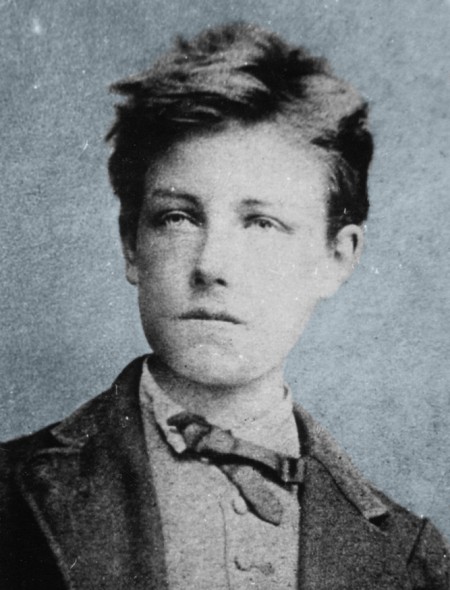
On April 7, 1891, French poet Arthur Rimbaud closed his gun running business and embarked on his last and most painful journey out of Harar, Ethiopia. The casual racism in this letter was rampant at the time, commonly used as a justification for French (and other European nations’) colonization of Africa. At thirty-seven, Rimbaud was unknowingly suffering from bone cancer which made the journey especially tough. With the aid of a caravan, he traded turns between joining the litter which drifted far behind, and riding a mule with his right leg tied to its neck. In Aden, he was misdiagnosed with synovitis, a condition commonly linked to arthritis and lupus. Rimbaud returned to Marseille, France on May 20, 1891. Although he managed to avoid amputation in Africa, his condition worsened. He lost his leg, “very high up,” on May 27, 1891. Months later, he writes to his sister, Isabella, “Never let yourself be amputated. Let them butcher you, flay you, slice you to pieces, but never allow anyone to amputate you. If it means death this will always be better than living without one of your limbs. Many have made this choice, and if I had another chance I would make it too. Better to suffer a year in hell than be amputated…” He died seven months later on November 10, 1891.
Aden, April 30, 1891
My dear mother,
I did indeed receive your two stockings and your letter, and I received them in unfortunate circumstances. Having seen the swelling of my right knee only increase along with the pain when bending it, and without finding any sort of remedy or opinion as to why (since in Harar we’re surrounded by niggers and there aren’t any Europeans there), I decided to leave. I had to abandon my business: which wasn’t easy, because I had money scattered across the coast; but I managed to liquidate almost completely. For three weeks, I had been resting in Harar, unable to move at all, suffering incredible pain and not sleeping at all. I rented sixteen Negro porters, at 15 thalers each, from Harar to Zeila; I had a stretcher made out of a sail, and during the twelve days I spent on it I crossed the 300 kilometers of desert that separate the Harar mountains from the Zeila port. Useless to detail the horrible suffering I experienced en route. I was unable to take a single step away from my stretcher; my knee had visibly swelled, and the pain had only increased.
Upon reaching here, I registered at the European hospital. There is one room only for paying patients: mine. The English doctor, as soon as I showed him my leg, burst out that it was a very dangerous stage of synovitis, stemming from lack of proper care and rest. He immediately said that the leg would have to go; then he decided to wait a few days to see if the swelling decreased a little after treatment. I have been here for six days without improvement, but at the very least the rest has brought a decrease in the pain. You know that synovitis is a malady relating to the liquid that allows the knee to bend, and it can be hereditary, or can develop after an accident, or many other reasons. Undoubtedly, mine was caused by exhaustion from long marches on foot and on horseback to Harar. So, given the condition in which I arrived, there is little hope that I will be better in any less than three months in the best case. And I am on my back, leg bandaged, tied, retied, chained, in such a way that I cannot move. I have become a skeleton: I frighten people. My back is raw from the bed: I don’t sleep a wink. And here the heat has become intense. The food in the hospital for which I am nonetheless paying a great deal is terrible. I don’t know what to do. On the other hand, I haven’t settled my accounts with my partner, Monsieur Tian. That won’t be settled for another week. I will leave with around 35 thousand francs. I would have had more; but because of my unfortunate departure, I lost several thousand francs. I would like to be taken to a steamboat and to have myself treated in France; the trip would help pass the time. And in France the medical care and medicines themselves are less expensive, and the air is good. It is therefore very likely that I will come. The steamboats for France right now are always full, because everyone is returning from the colonies this time of year. And I am a poor invalid who must be transported very carefully! So I should make my departure in about a week.
Don’t be upset by all of this, regardless. Better days are coming. But it is a sad return on so much work, deprivation, and suffering! Alas, life is miserable!
With all my heart.
Rimbaud.
P.S. As for the stockings, they are useless. I will resell them somewhere.
From I Promise to be Good: The Letters of Arthur Rimbaud. New York: Modern Library (2004).
FURTHER READING
In 1883, Rimbaud traveled through East Africa, and created “The Report on Ogaden” which outlined the terrain, climate, and civilizations that lived there.
His career change from poet to gun-runner, about which very little is known.


